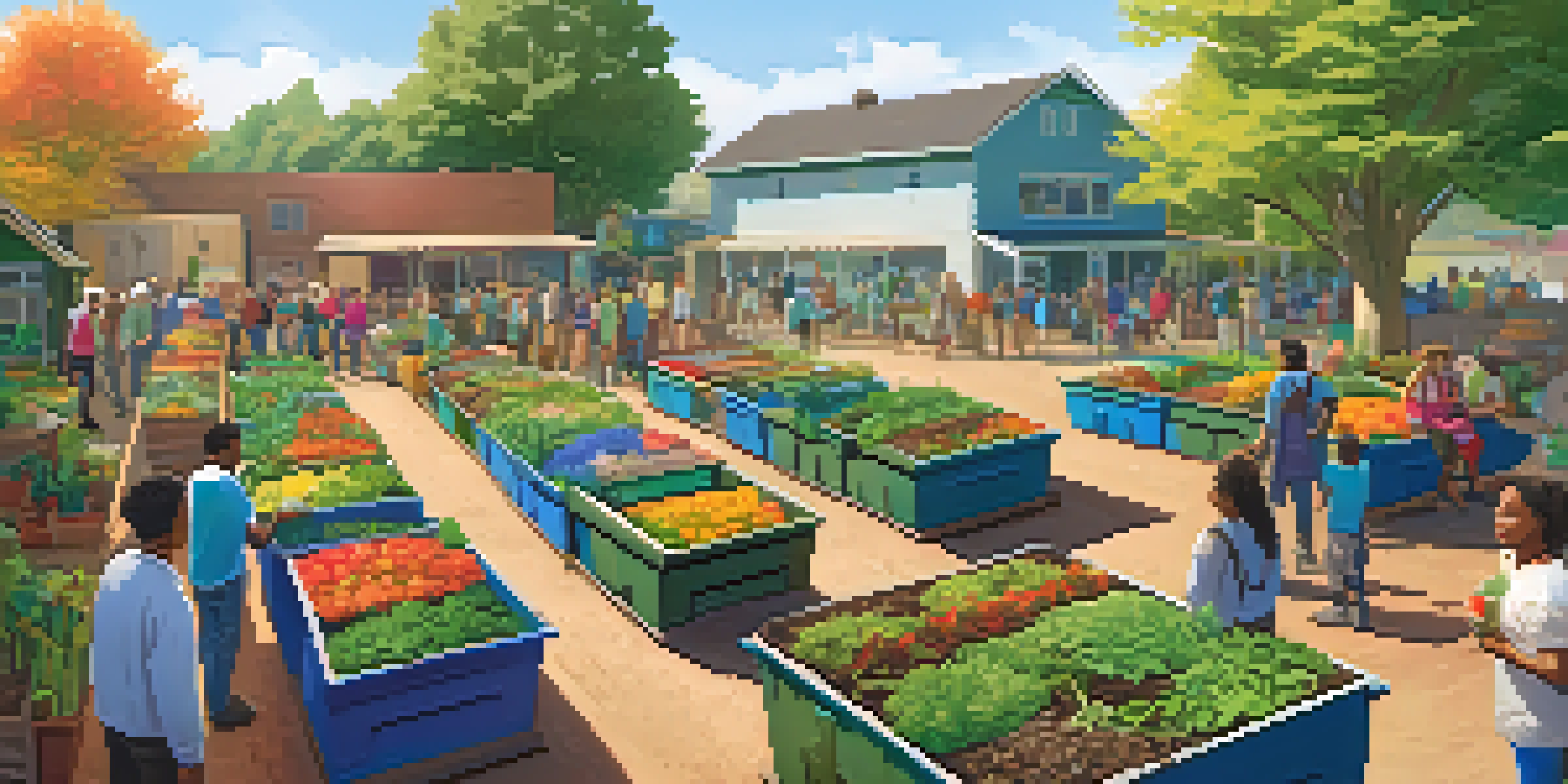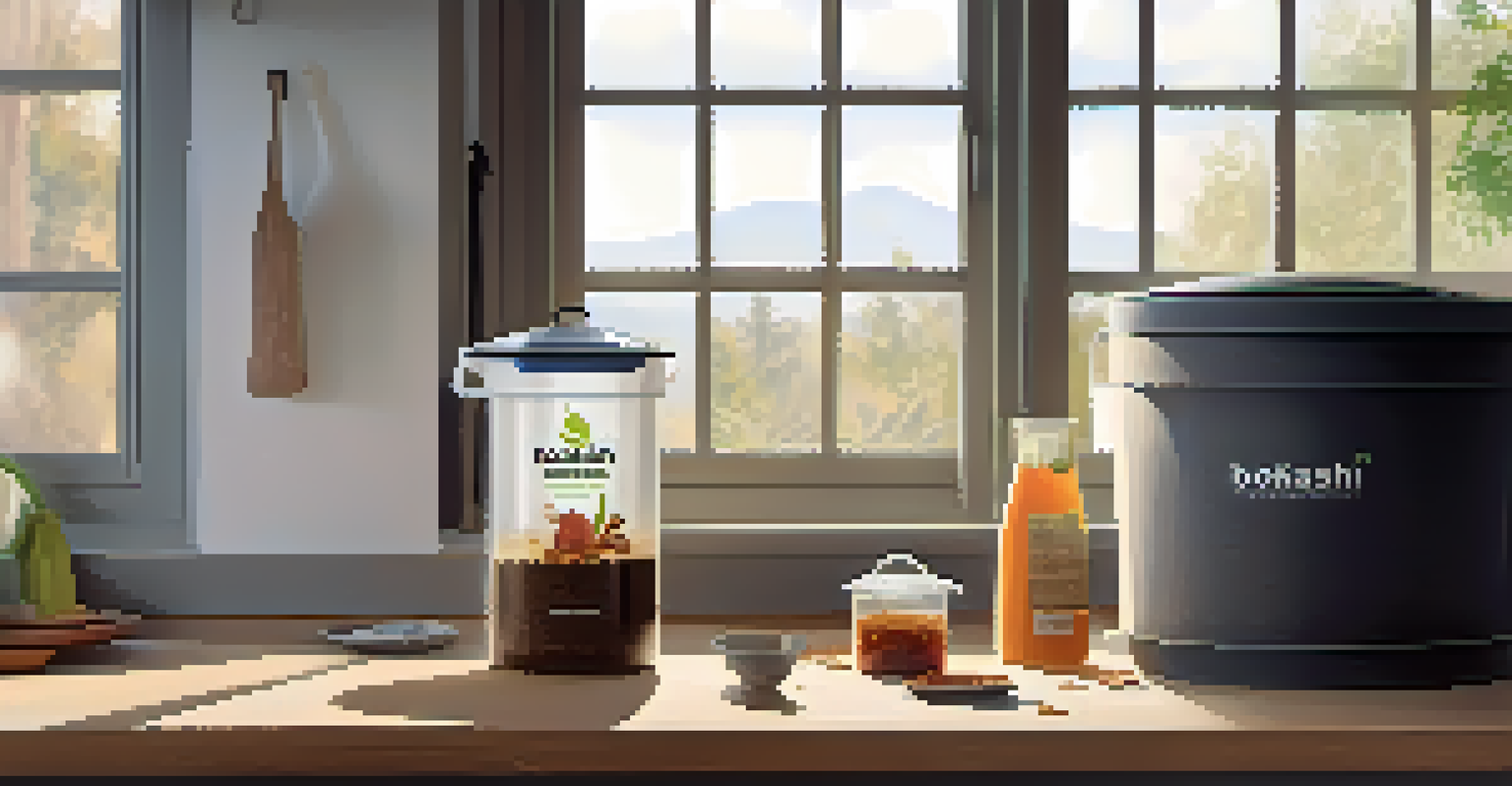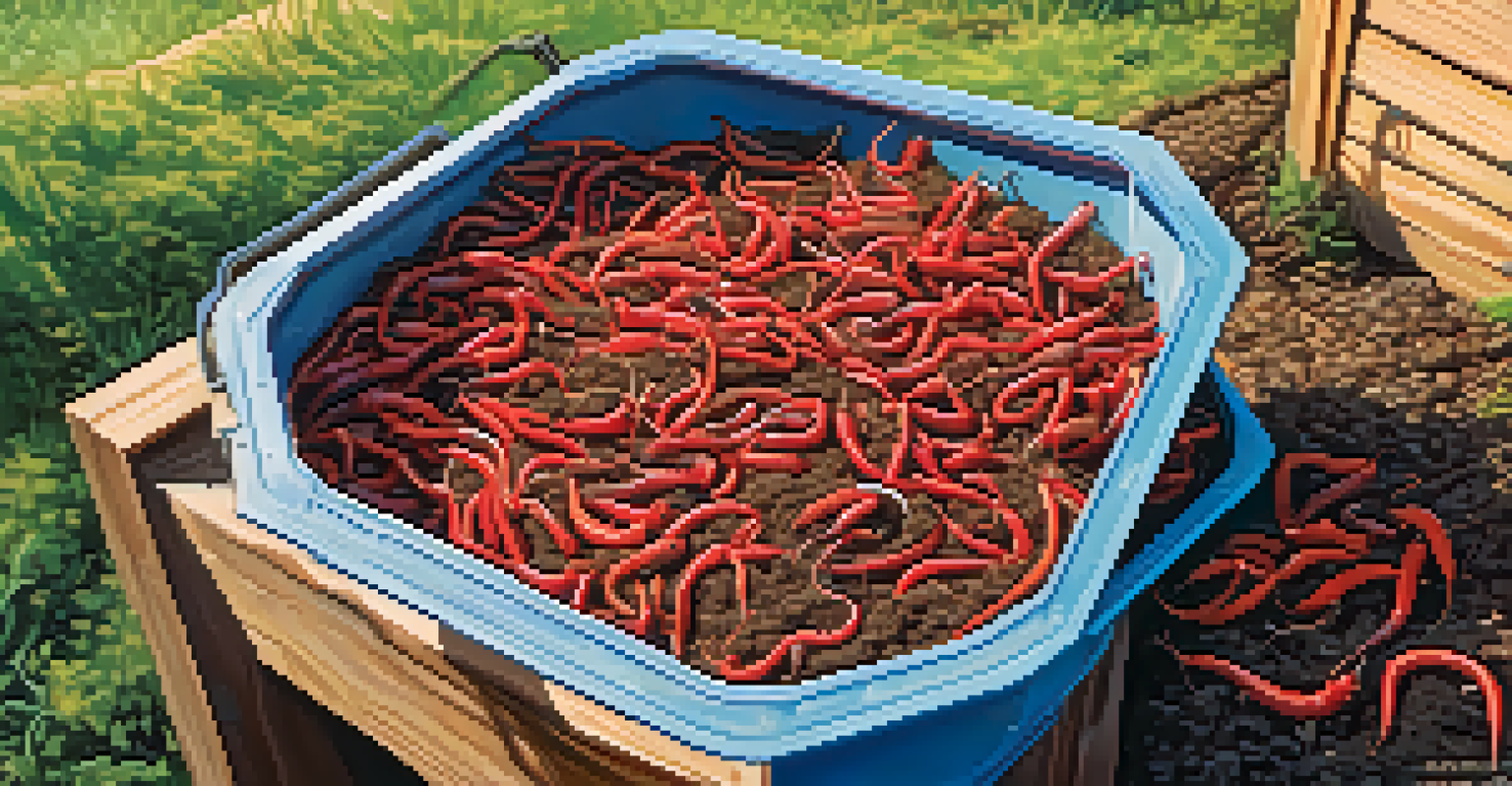Innovative Composting Solutions for Sustainable Living

Understanding the Basics of Composting
Composting is a natural process that transforms organic waste into valuable fertilizer. By breaking down materials like food scraps and yard waste, composting enriches soil and reduces landfill waste. It’s a simple yet powerful way to contribute to a sustainable environment.
Composting is a natural process that transforms organic waste into valuable fertilizer.
At its core, composting involves a mix of carbon-rich 'browns' like dry leaves and nitrogen-rich 'greens' such as fruit peels. When combined and managed properly, microbes do their magic, turning waste into nutrient-rich compost. This process not only helps in waste management but also enhances soil health.
Understanding the fundamentals of composting sets the stage for exploring innovative solutions. With a grasp on what composting entails, we can delve into modern methods that enhance efficiency and accessibility for everyone.
Bokashi: The Fermentation Revolution
Bokashi composting is a unique method that involves fermenting organic waste instead of traditional decomposition. Using a special mix of beneficial microbes, Bokashi creates an anaerobic environment that breaks down food scraps faster. This means you can compost even meat and dairy, which are typically challenging to deal with.

One of the best parts about Bokashi is its speed; you can start using the compost in just a few weeks. After fermentation, the contents can be buried in the ground, where they continue to decompose and enrich the soil. It’s a space-saving solution perfect for urban dwellers, making composting more accessible.
Composting Enriches the Environment
Composting transforms organic waste into nutrient-rich fertilizer, contributing to soil health and reducing landfill waste.
Bokashi not only reduces waste but also produces a liquid fertilizer that can be diluted and used on plants. This method exemplifies how innovative composting solutions can transform kitchen scraps into valuable resources.
Worm Composting: Nature's Little Recyclers
Worm composting, or vermicomposting, involves using earthworms to convert organic waste into nutrient-rich compost. Red wigglers are particularly effective at breaking down food scraps, and they thrive in a controlled environment. This method is ideal for those looking to compost indoors or in small spaces.
The future of composting lies in integrating these technologies with community efforts.
Setting up a worm bin is straightforward and can be done with simple materials like a plastic container. As the worms digest the food, they produce castings that are packed with nutrients for your garden. This method not only reduces waste but also teaches a hands-on approach to recycling.
Vermicomposting can also be a fun educational project for families. It offers a tangible way to learn about ecosystems while contributing to sustainable living practices.
Community Composting Initiatives
Community composting is an innovative way to engage neighborhoods in sustainable practices. By coming together, residents can pool their organic waste and compost it collectively, reducing individual burdens. This method fosters a sense of community and shared responsibility for the environment.
Many cities are establishing community composting programs that provide shared bins and educational resources. These initiatives often include workshops, teaching participants about the benefits of composting and how to do it effectively. This collaborative approach not only helps the environment but also strengthens local ties.
Innovative Composting Methods
Techniques like Bokashi and worm composting offer efficient and accessible ways to recycle organic materials, even in small spaces.
Community composting also allows for larger quantities of waste to be processed, leading to more significant environmental impact. It’s a perfect example of how innovative solutions can thrive when people unite for a common cause.
Compost Tumblers: Efficient and Space-Saving
Compost tumblers offer an innovative solution for those with limited space. These enclosed bins allow for easy mixing and aeration of compost materials, speeding up the decomposition process. With a simple turn of the handle, you can easily combine materials without the mess of traditional compost piles.
The design of compost tumblers prevents pests and odors, making them ideal for urban settings. They come in various sizes, catering to different needs and available spaces. This convenience encourages more people to start composting, further promoting sustainable living.
Moreover, many compost tumblers are made from recycled materials, which adds to their eco-friendly appeal. This practical solution highlights how technology can enhance traditional composting methods.
The Role of Composting in Zero Waste Lifestyle
Composting plays a crucial role in the zero waste movement by diverting organic materials from landfills. When we compost, we’re not just reducing waste; we’re also creating a closed-loop system where nutrients return to the earth. This practice aligns perfectly with the principles of sustainability.
By integrating composting into our daily routines, we take a significant step towards minimizing our environmental footprint. It encourages mindful consumption as we become more aware of the waste we generate. The act of composting can inspire us to make other sustainable choices in our lives.
Community Composting Benefits
Community composting initiatives foster collaboration among residents, enhancing local ties while effectively managing organic waste.
Embracing a zero waste lifestyle means viewing waste as a resource, and composting is a prime example of this mindset. It’s not only about reducing waste but also about creating a healthier planet for future generations.
The Future of Composting Technology
As the global focus on sustainability grows, so does innovation in composting technology. New solutions like in-vessel composters and anaerobic digesters are emerging, making composting more efficient and accessible to everyone. These technologies can handle larger volumes of waste while producing high-quality compost.
In-vessel composters can process organic waste quickly and are often used by businesses and municipalities. They provide a controlled environment for decomposition, ensuring optimal conditions for composting. This advancement allows for the diversion of food waste from landfills on a larger scale.

The future of composting lies in integrating these technologies with community efforts. By leveraging innovation, we can create sustainable systems that not only reduce waste but also promote a healthier planet.
Getting Started with Innovative Composting
Starting your composting journey can be as simple as choosing the right method for your lifestyle. Whether you opt for Bokashi, worm composting, or a traditional bin, the key is to begin. Each method has its unique benefits, so select one that fits your space and needs.
Take the time to educate yourself about composting best practices, as successful composting often hinges on proper technique. Resources are plentiful, from online tutorials to local workshops. Engaging with your community can also provide valuable insights and support.
Ultimately, every small step towards composting contributes to a larger movement for sustainability. Embrace the journey, and you’ll not only reduce waste but also enrich your garden and enhance your connection to the environment.